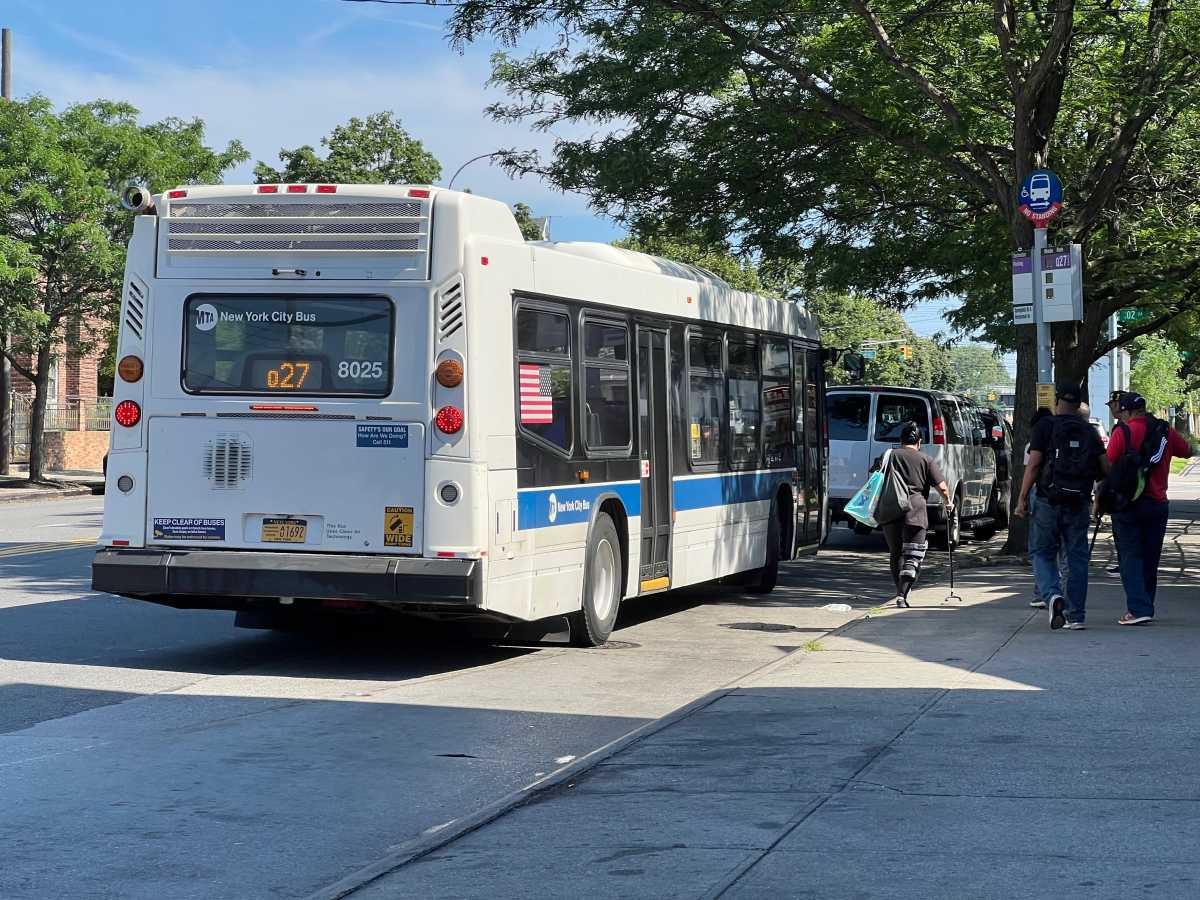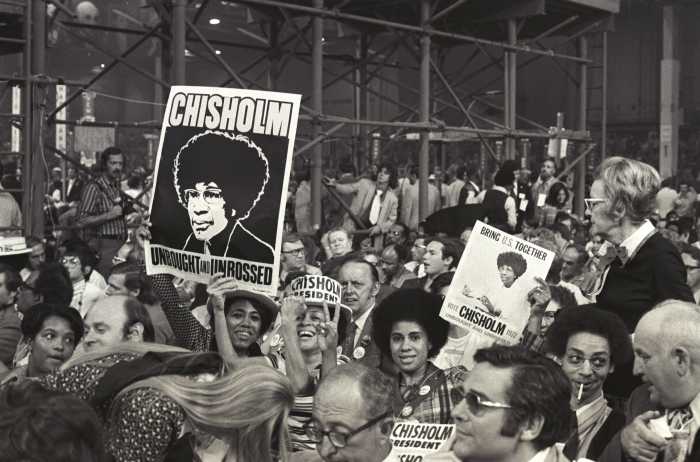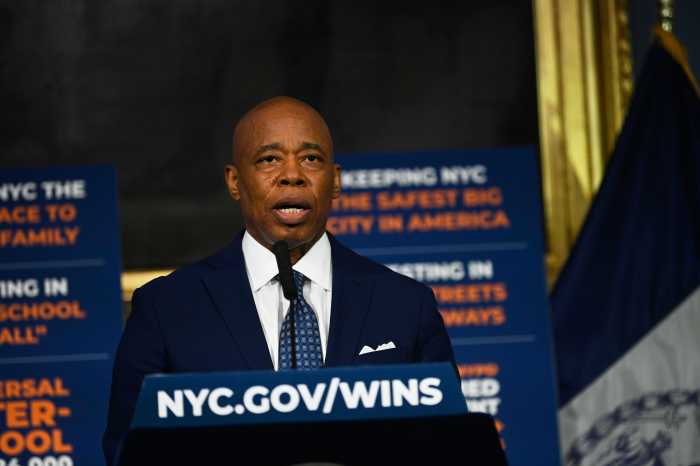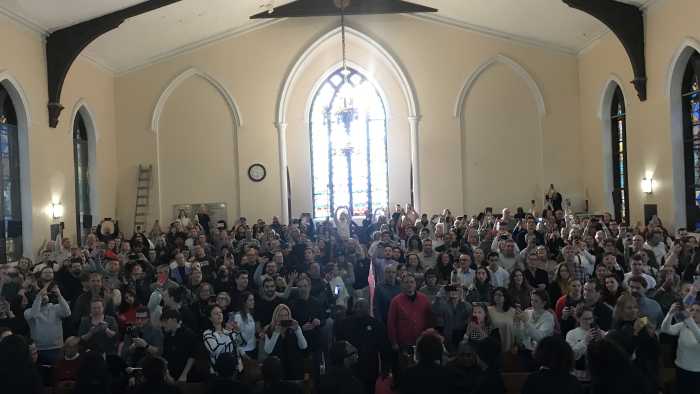BY LINCOLN ANDERSON | Cat ears — whether on “pussy hats” or just plain, pipe-cleaner-style ears — have filled the air at the Women’s Marches against Donald Trump. But they were also out in force at the inaugural Cat Camp in Chelsea the other weekend.
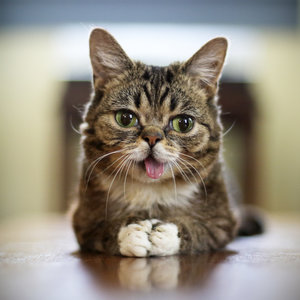
People weren’t actually allowed to bring their own pets to the event, at the Metropolitan Pavilion on W. 19th St.: Instead, the cat ears were atop many of the attendees’ heads.
Cat Camp, billed as New York’s “first feline-focused conference and adoption extravaganza,” follows on the heels — or, rather, the paws — of Catcon, an annual Los Angeles event that has been hugely successful in recent years.
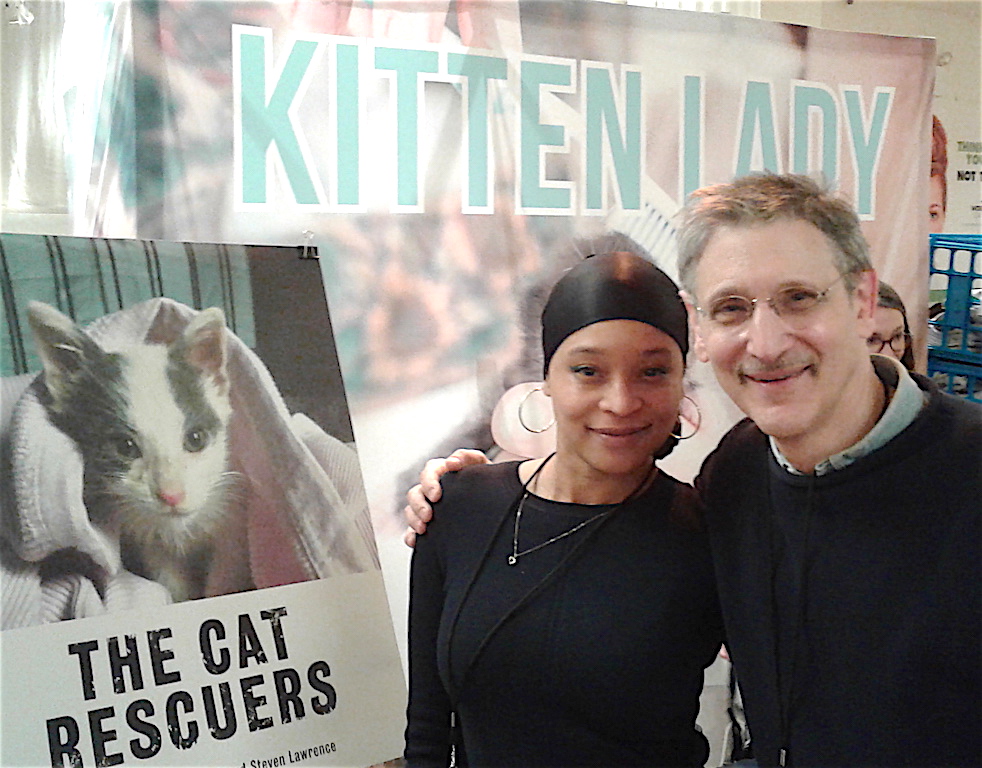
The organizer behind Cat Camp was Christina Ha, co-founder of Meow Parlour, a cat cafe at 46 Hester St. At cat cafes, people pay to pet cats or just work on their laptop computers while the cats nap next to them. Hopefully, nap, that is — since, of course, there’s nothing more enticing to a cat than parking itself in front of a laptop while someone is actually trying to use it. The Lower East Side cat cafe has also fostered more than 200 hard-to-adopt cats since opening in late 2014.
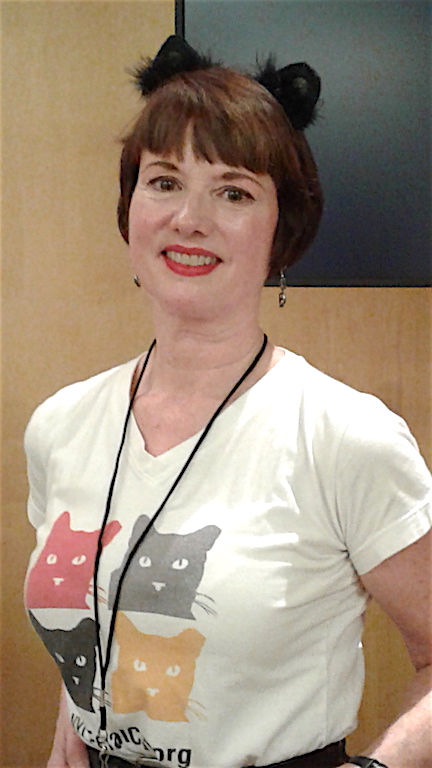
The two-day cat confab on March 11-12 included talks by various celebrities, activists and cat-behavior consultants, ranging from the likes of Jackson Galaxy, host of “My Cat From Hell,” the Animal Planet reality-TV show — who signed photos for fans — to Kathleen O’Malley, of the New York City Feral Cat Initiative, and Hannah Shaw, a.k.a. The Kitten Lady. Galaxy was the weekend’s keynote speaker.
Another of the event’s big stars was Lil Bub, the dwarf Indiana kitten, whose overly large eyes and lolling tongue forever hanging out of her mouth — she was born without a lower jaw — have endeared her to cat lovers.
There were also at least two teams of documentary filmmakers who are currently doing projects on “community cats” a.k.a. feral cats, in Brooklyn and elsewhere.
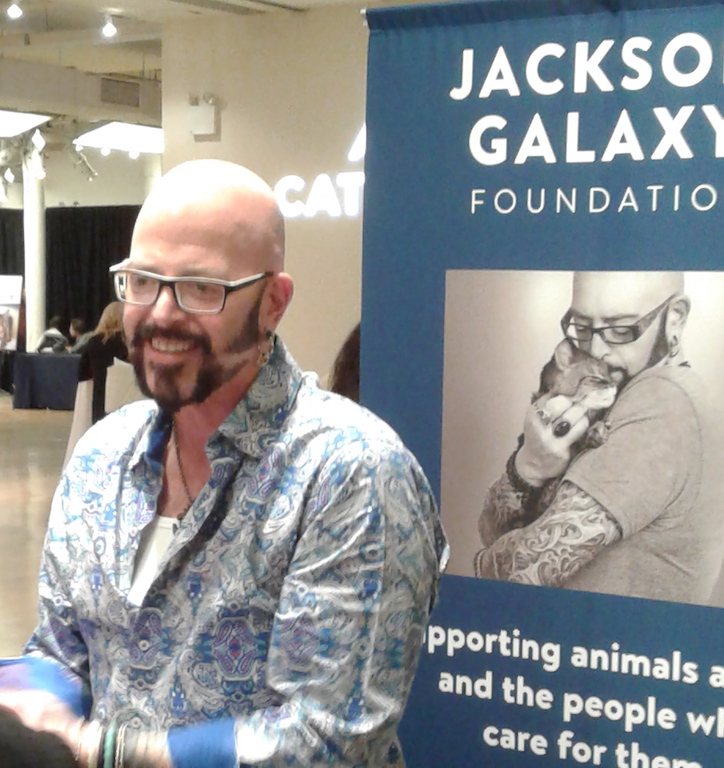
If attendees took away anything from the conference it was the concept of “T.N.R.” — as in “trap, neuter, release.” As O’Malley and members of the team from “The Cat Rescuers” (the Brooklyn film) explained, feral cats generally are hard to adopt; but people can have a terrific, sustainable “cat colony” in their backyard by trapping the animals in special cages, getting them fixed and then returning them to their stomping ground. In this way, the critters’ numbers won’t explode and — if “feeding stations” are kept properly filled — the animals won’t go wandering dangerously across streets in search of chow.
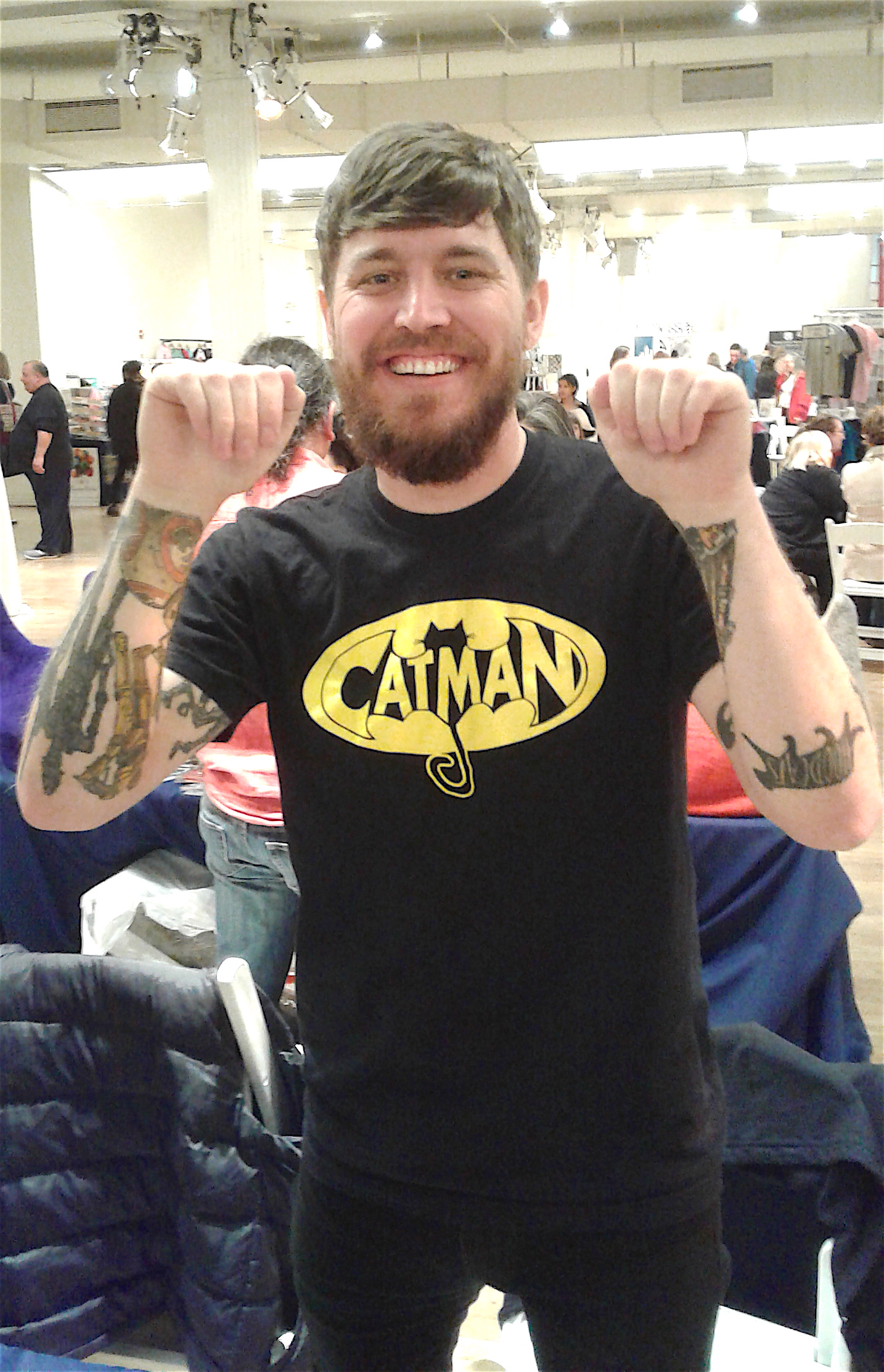
Of course, in addition to new information, Cat Campgoers could also take away something physical, too, as in a plethora of products from the event’s dozens of vendors. For example, you could buy Pussweek magazine, an Australian parody of a style magazine.
“It’s the GQ of cats,” noted publisher Bexy McFly, from Sydney.
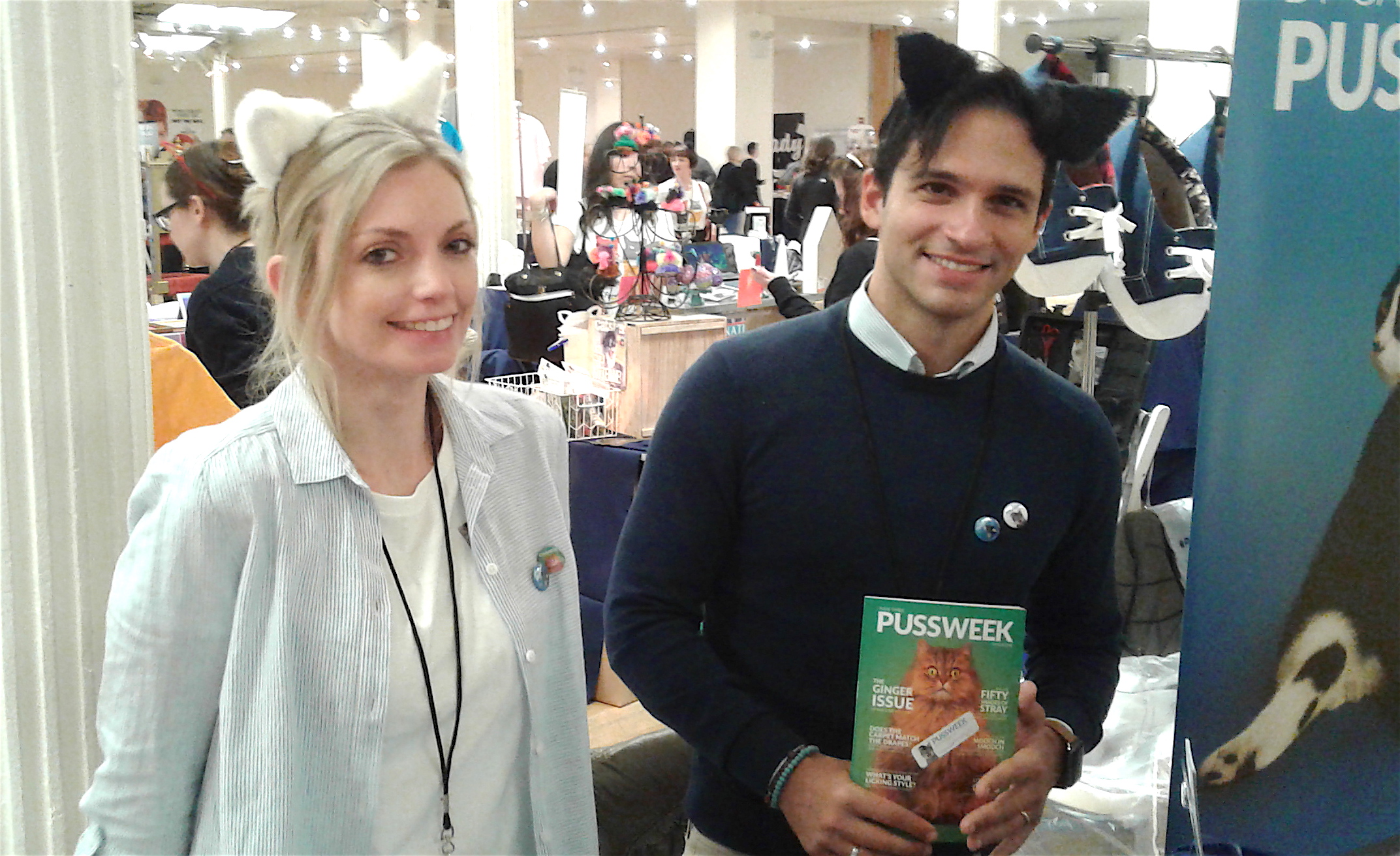
You could also buy coma-inducing catnip in an array of varieties, almost akin to the choices at a pot dispensary; and even catnip-spiked cat “wine.” (However, some “cat cabernet” purchased by a friend of this writer was totally snubbed by her cats.)
People could also get an actual cat from one of nine adoption groups at Cat Camp.
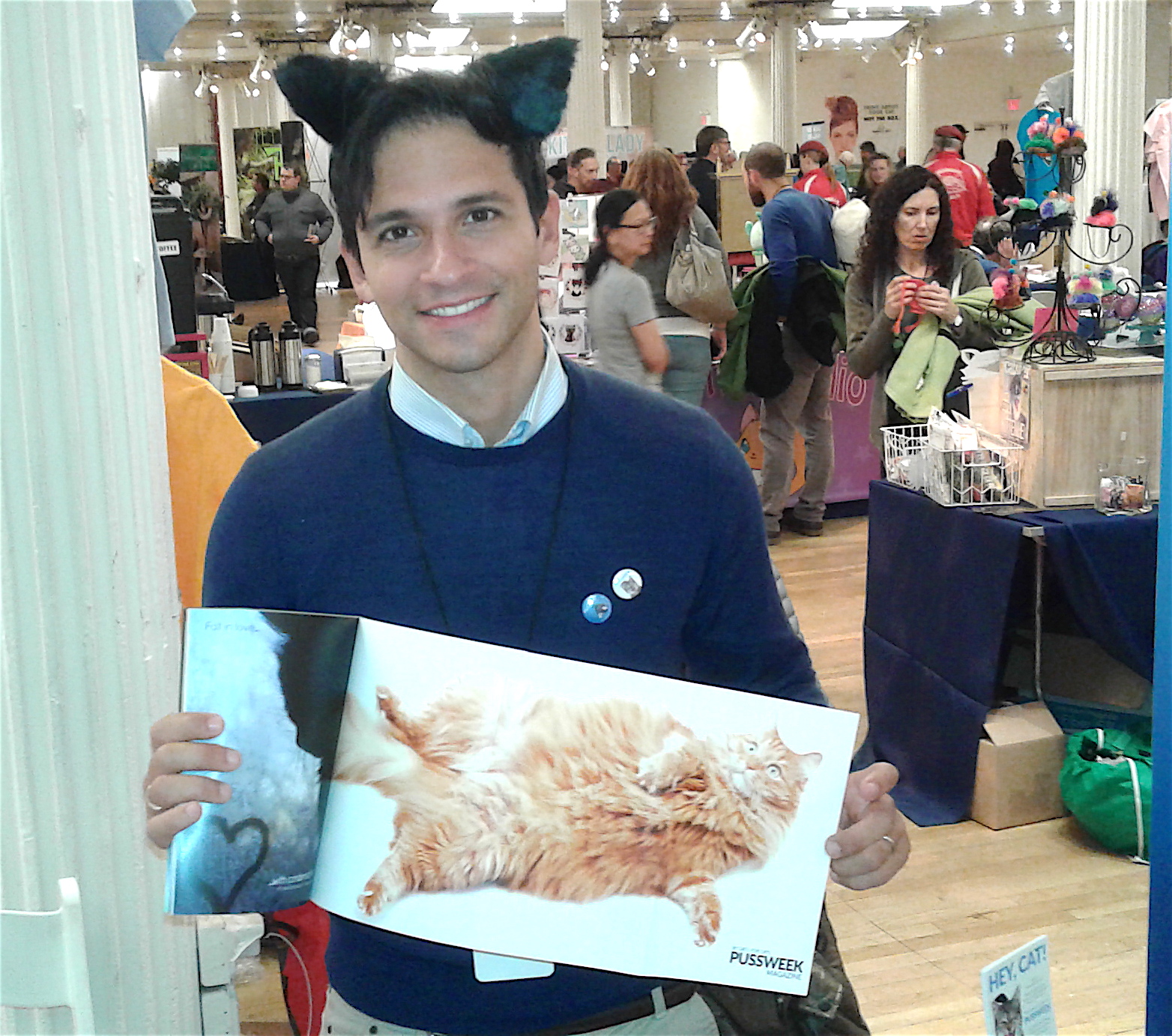
Admission was $20 and up, with more for V.I.P. events, such as Galaxy’s talk.
In addition to O’Malley and others who are educating people on how to keep feral cat colonies contained and healthy, community cats are now receiving some serious protection — namely, from the Guardian Angels.
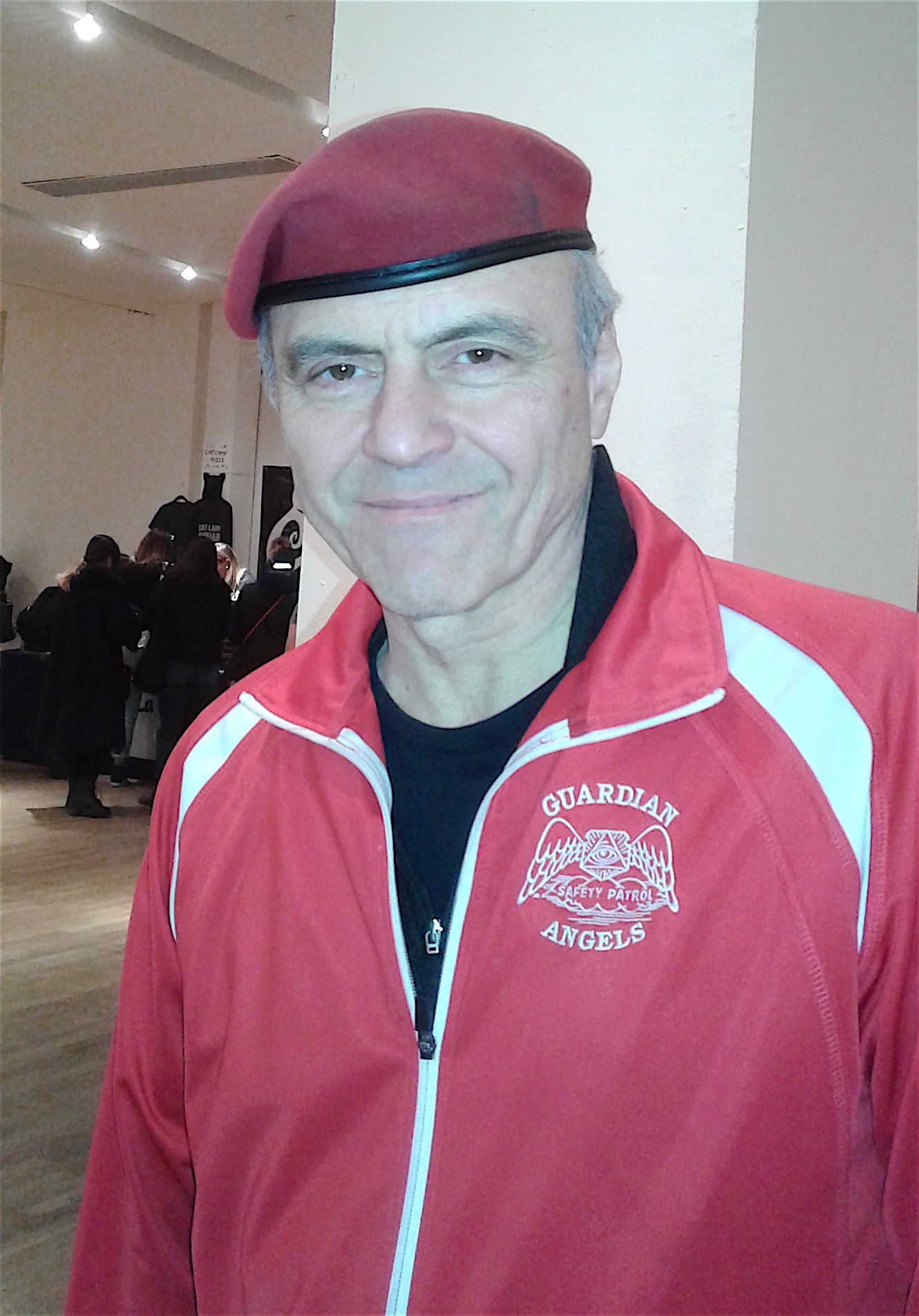
Curtis Sliwa, the crime-fighting group’s founder, was strolling around checking out the vendors’ offerings at Cat Camp’s first day, along with Nancy Regula, director of the Guardian Angels’ Animal Protection wing. Regula — whose Angels handle is “Lone Wolf” — is an attorney from the Upper West Side. She got involved with the Angels about a year ago. She personally takes care of one feral cat colony in Sunset Park and assists with nine others. (Based just on Cat Camp, it seems that Brooklyn may be one of the world’s leading locations for feral cat colonies.)
Sliwa is a big proponent of community cats, and gave them his stamp of approval. However, he noted, his Italian mother had some Old World misconceptions about them — namely, that because they carry rats in their mouths, they have diseases.
“They’re very good for rodent control,” he said.
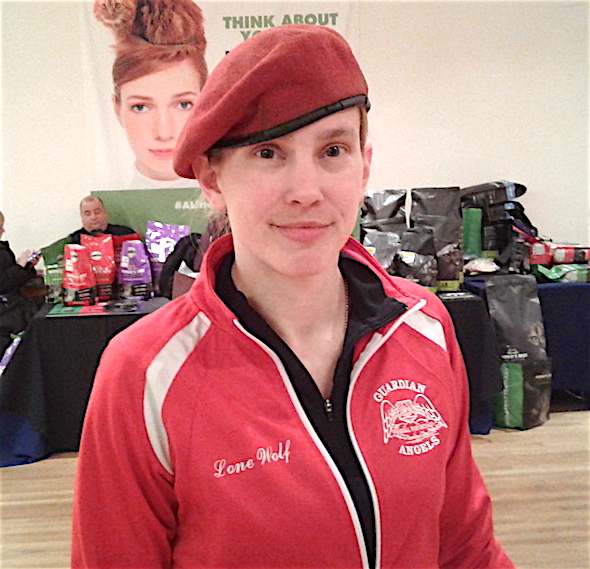
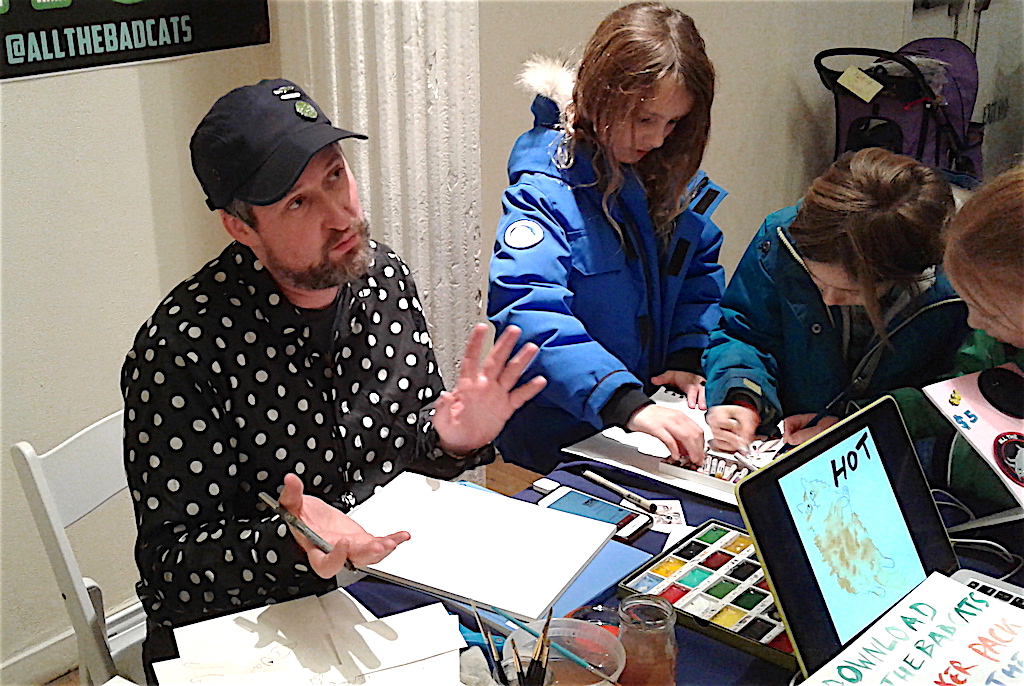
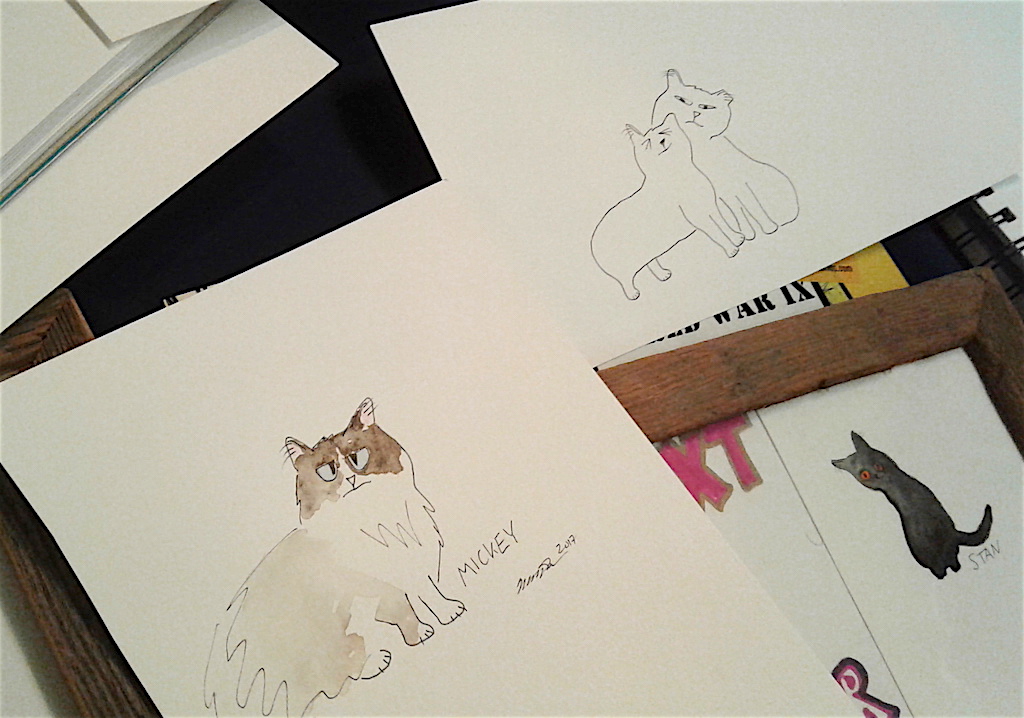
Tina Traster of the group Catnip Nation, who is also making a documentary on feral cats, and is seeking funding for it, said it’s estimated there are 90 million of them in the U.S.



